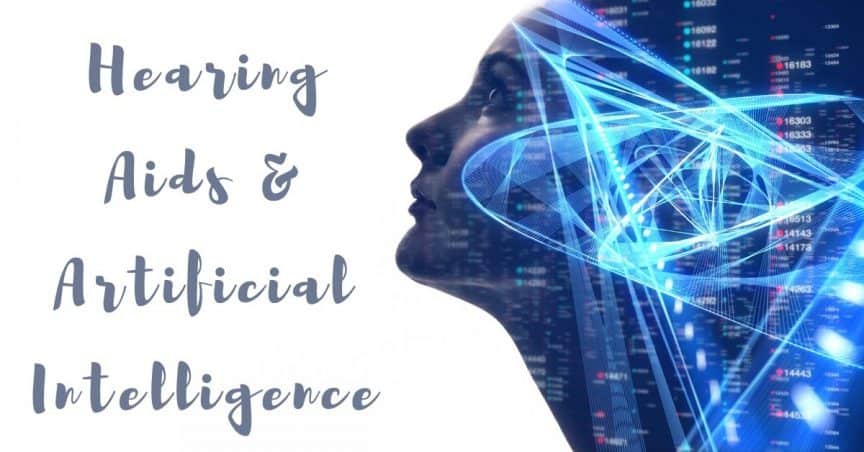- The Emotional Journey of Accepting Hearing Loss - October 25, 2024
- Making a Style Statement with Hearing Aids This Fall - October 15, 2024
- Fireplace Safety and Hearing aids - October 4, 2024
Hearing aids are complex devices that utilize technology to improve health. Similar to most electronics today, hearing aids have experienced significant innovation over recent years. Continuously advancing technology has contributed to wide-range of hearing aids that come in a variety of styles and with numerous features that enhance user experience. Latest advancements include using artificial intelligence to create a more integrated and seamless listening experience.
Hearing Aids & Technology
Hearing aids have used advanced technology to produce clearer sound and create more possibilities for connectivity for quite some time. These devices can do incredible things like:
- Use noise cancellation features to reduce background noise and distractions
- Connect to your smartphone, TV, computer etc. via Bluetooth technology to stream music, phone calls, shows, movies etc.
- Link with your smartphone and access your phone’s technology. For example, being connected to the GPS and when you have arrived at a specific location, your hearing aids can switch to the settings best suited for that environment.
As technology continues to advance and shape the world we live in, more and more features are designed so that hearing aids can easily integrate.
What is Artificial Intelligence?
Artificial Intelligence, also referred to as machine learning, refers to the capacity of computers (and other machines) to apply intelligent solutions to solve complex problems. Using multifaceted technologies – algorithms, historical data etc. – machines can respond to specific actions and make predictions. This high-level processing mimics human intelligence by using “cognitive” functions to achieve goals and solve problems.
Though this may sound complicated, we interact and rely on AI in our daily lives, common examples include the following:
- Search Engines: Using search engines such as Google which use algorithms to provide you with the appropriate results for your specific search.
- Online Ads: do you feel like certain ads keep popping up on your device? This is because they are! Online ads use AI to figure out their target audience based on previous online searches, interests, and behavioral patterns.
- Emails: the spam filter in your email inbox uses AI to identify and dispose of spam emails. Machine learning algorithms learn from the words in the message, where the email is sent from, who it is sent from etc. to determine if it is spam.
- Social Media: various social media platforms (for example Facebook) use AI to make suggestions, identify faces, personalize newsfeed, make recommendations, create filters etc.
- Other common uses of AI include voice-to-text messages, Netflix recommendations, using AI “assistants” like Alexa, Siri, Cortana etc.
We are constantly surrounded by and immersed in artificial intelligence. In many ways, AI has made things more convenient, accessible, and efficient.
Hearing Aids & AI
Artificial intelligence technology has only been recently introduced to hearing aids. AI in hearing aids is used to learn the user’s preferences and adjust automatically to various environments.
Learning from the behavior of the wearer combined with using algorithms hearing aids that use AI can:
- Adjust Automatically: AI hearing aids can analyze the sound in an environment, and make adjustments accordingly. This is done by observing the settings and programs the wearer has established in different environments. AI technology remembers this information so when you have entered a new setting, it can analyze that setting and make the adjustments automatically to meet your preferences! Rather than the person having to make manual adjustments. This allows hearing aids to be easily integrated in one’s life, creating an effortless listening experience
- Increase Own Voice Recognition: it is common for people who use hearing aids to experience the distortion of their own voice. AI technology can learn the wearer’s voice (using voice recognition programs) and using an algorithm, separate their voice from any background noise. This results in the wearer hearing a more natural expression of their own voice.
- Track Health: similar to how smartwatches can track health and fitness, AI hearing aids use integrated sensors to track physical and brain activity. These hearing devices can track social interaction, daily time spent listening, physical steps etc.
These innovative features create an effortless and more effective listening experience. AI technology continues to open up further possibilities that we are excited to follow!

